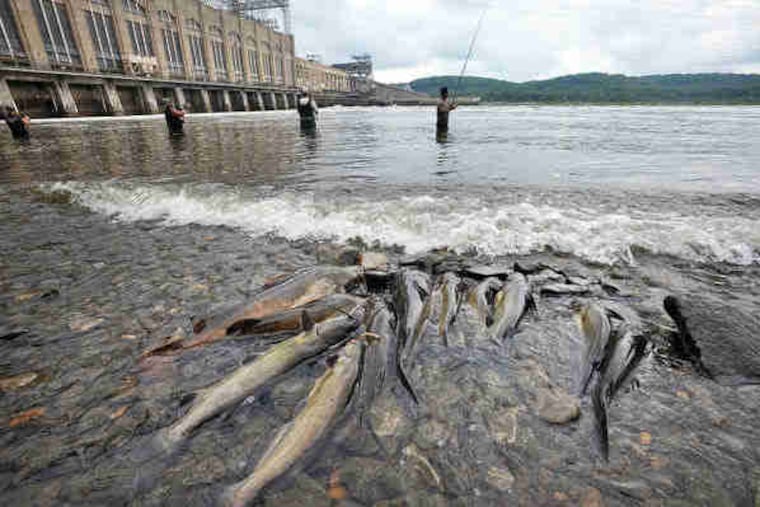Poultry plant owned by Bell & Evans will be fined for polluting Susquehanna River watershed
Court records show that Keystone Protein has been exceeding its wastewater limits for years.

A Lebanon County chicken processing plant will pay fines for polluting the Susquehanna River watershed, a federal judge ruled.
The Lower Susquehanna Riverkeeper Association alleged in a 2019 complaint that Keystone Protein Co., located in Fredericksburg, Lebanon County, had been violating the Clean Water Act for years by exceeding nitrogen limits with its wastewater discharge.
In a ruling issued Feb. 18, U.S. District Court Judge Jennifer Wilson said she would impose civil penalties to “deter Keystone from exceeding its permit levels in the future, but also will serve to deter others as well.”
The company’s wastewater flows into a small tributary that connects to Swatara Creek, which feeds into the Susquehanna River and, eventually, the Chesapeake Bay. Increased amounts of nitrogen in the water, the riverkeeper association said in its complaint, causes excess algae that can starve waterways of oxygen and create “dead zones.”
In 2012, the Pennsylvania Department of Environmental Protection (DEP) issued Keystone, which is owned by Bell & Evans, a permit to discharge wastewater with limits, and since then, according to the Feb. 18 ruling, the company has never been in compliance. The company designed a wastewater treatment update in 2012 but didn’t start construction until 2019. According to the ruling, that updated treatment system is currently working.
Lower Susquehanna Riverkeeper Ted Evgeniadis said Pennsylvania’s DEP did not stringently enforce those violations. That’s what compelled the riverkeeper association to file suit.
“This problem should have been solved five years ago,” Evgeniadis said. “It’s just [Keystone] stalling so they can make more money.”
Bell & Evans declined to comment, citing the litigation. In court filings, the company said it already paid $19,000 in fines and contended that the issue was not a federal matter.
The fine amount will be determined during the penalty face of the litigation.